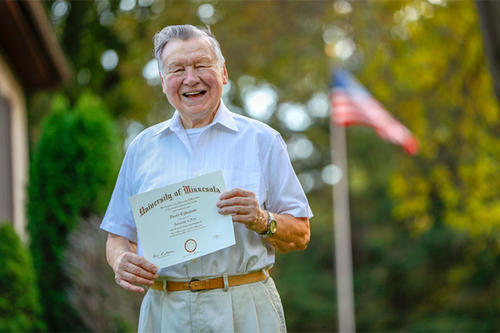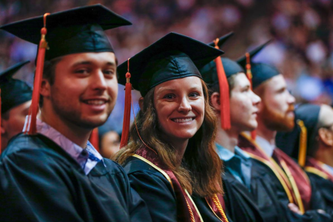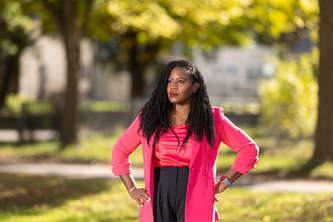
“Patience is bitter, but its fruit is sweet.”
—Jean-Jacques Rousseau
When Dan Cylkowski started taking classes at the University of Minnesota, Harry S. Truman was president, “The Greatest Generation” had just returned home after World War II, and Cylkowski—one of the greatest—commuted to campus by streetcar. It was 1946.
The path to his degree got complicated after that; here’s the abridged story.
Cylkowski originally wanted to study architecture, but he only qualified for the U of M’s two-year General College program. He studied hard, took classes in the summer, and was looking forward to graduation, even procuring tickets to attend commencement with his family. But he had to work and didn’t attend the ceremony. Later, he found out he was missing a requirement for graduation: a physical exam.
He didn’t get one because he couldn’t afford it. The U of M denied his petition for a degree in absentia, so he gave up.
“That was crazy at the time. I was just let out of the Army in 1946, and I got a physical when I was discharged,” he says. “That’s just the way it goes.”
Flash forward about 70 years and there’s a very happy ending to this tale. Recently, Cylkowski got the bug again to obtain his diploma, encouraged by his granddaughter Alicia Arellano, a third-generation Gopher who earned her degree in 2007. She did some legwork, and after some research and collaboration involving two colleges and an administrative unit, the Office of the Registrar issued Cylkowski an associate of arts degree backdated to 1947.
He received it in the mail along with a diploma cover and a U of M baseball cap, all of which he cherishes. He even wrote a letter to the registrar’s office. “Thanks to all the individuals who spent so much time and effort to research the graduation process my prayers were answered,” it said in part. “I am tremendously grateful to each and every one of you and will never forget what you did for a 94-year-old World War II veteran.”
It made me feel good. … I never dreamt I would be in this position to say I’m a college graduate!
Back in the day
Hearing about Cylkowski’s vim and vitality doesn’t measure up to meeting him in person. He’s 94 going on about 70, with a firm handshake, a warm glint in his eye, and a full head of barely graying hair.
In the kitchen of his immaculate home in Little Canada, the stories flow freely—of his boyhood on St. Paul’s East Side, his schooling, his Army days during World War II, his time at the U of M, and his successful career.
When he started at the U of M in the summer of 1946, Cylkowski couldn’t afford a car and was living at home on the East Side of St. Paul, hence the commute by streetcar. “It took me an hour and 10 minutes every day to go from home to the University,” he says.
And campus was bursting at the seams with a wave of vets taking advantage of the GI Bill. It was “crowded as heck” in all of his classes, he says. “It was kind of hard to adjust. I didn’t know anyone.” But, he adds, “I knew I had the intelligence that I could do this.”
Cylkowski was hardly dissuaded by not having his degree; in fact, he discovered early on that architecture didn’t pay well back then, and was happy to pursue other options. He worked on and off in carpentry for a number of years, and eventually settled in to a long and fruitful career for Hamm’s Brewery in St. Paul, despite never being a drinker himself.
A few decades later and he was enlisting the help of his granddaughter. When she first came back to the U to make the inquiry, she was told that they couldn’t find him in the system. She laughs at the recollection. “Yeah,” she says, “that’s because he was there before you had a system!”
Then came the news that he was getting his diploma, 70-plus years after earning it.
If patience is bitter but its fruit sweet, as the quote suggests, then Cylkowski is sipping from a long overdue cup of nectar.
“Imagine, all these years,” he says, his voice trailing and his stories filling the gaps. “It made me feel good. … I never dreamt I would be in this position to say I’m a college graduate!”
- Categories:
- Campus Affairs





